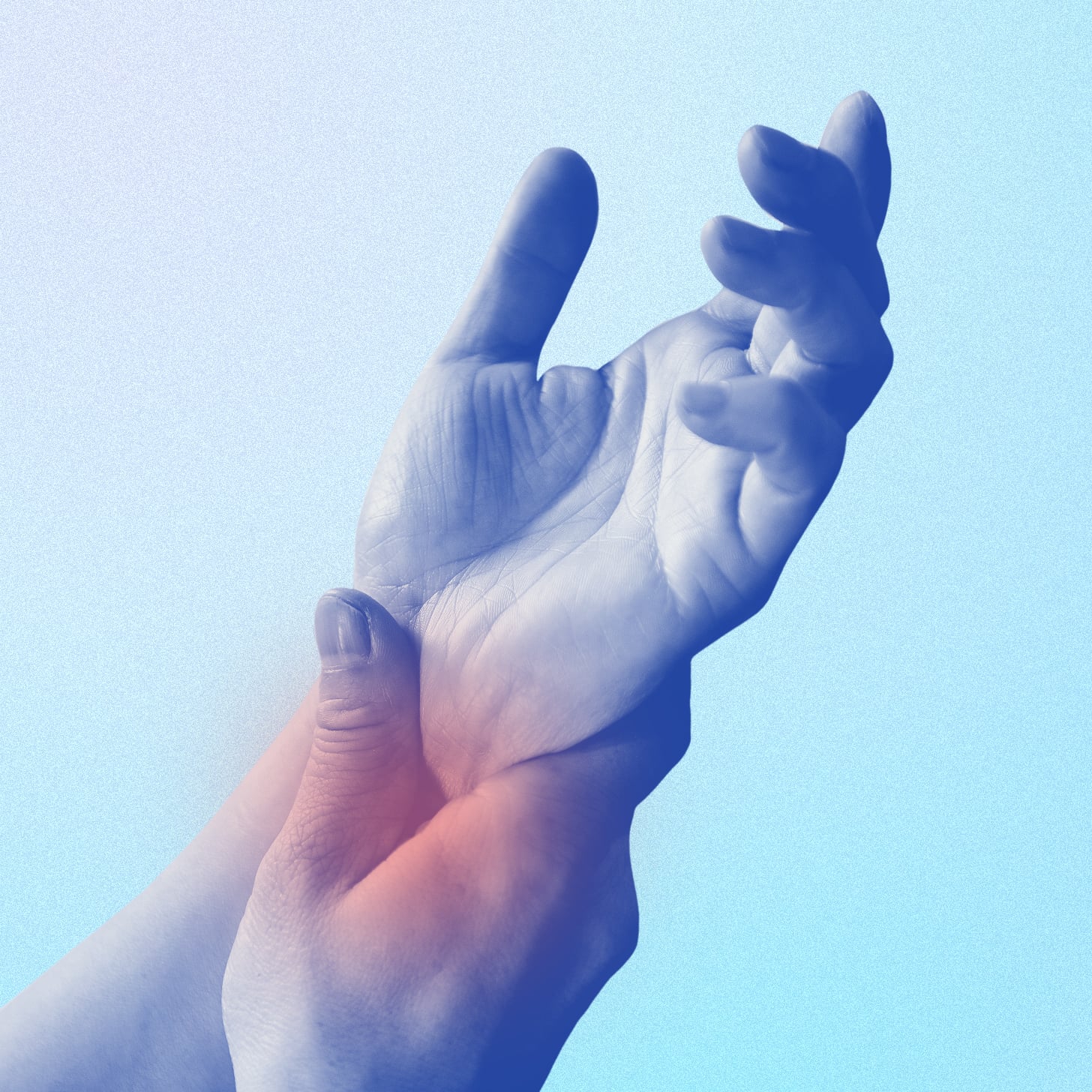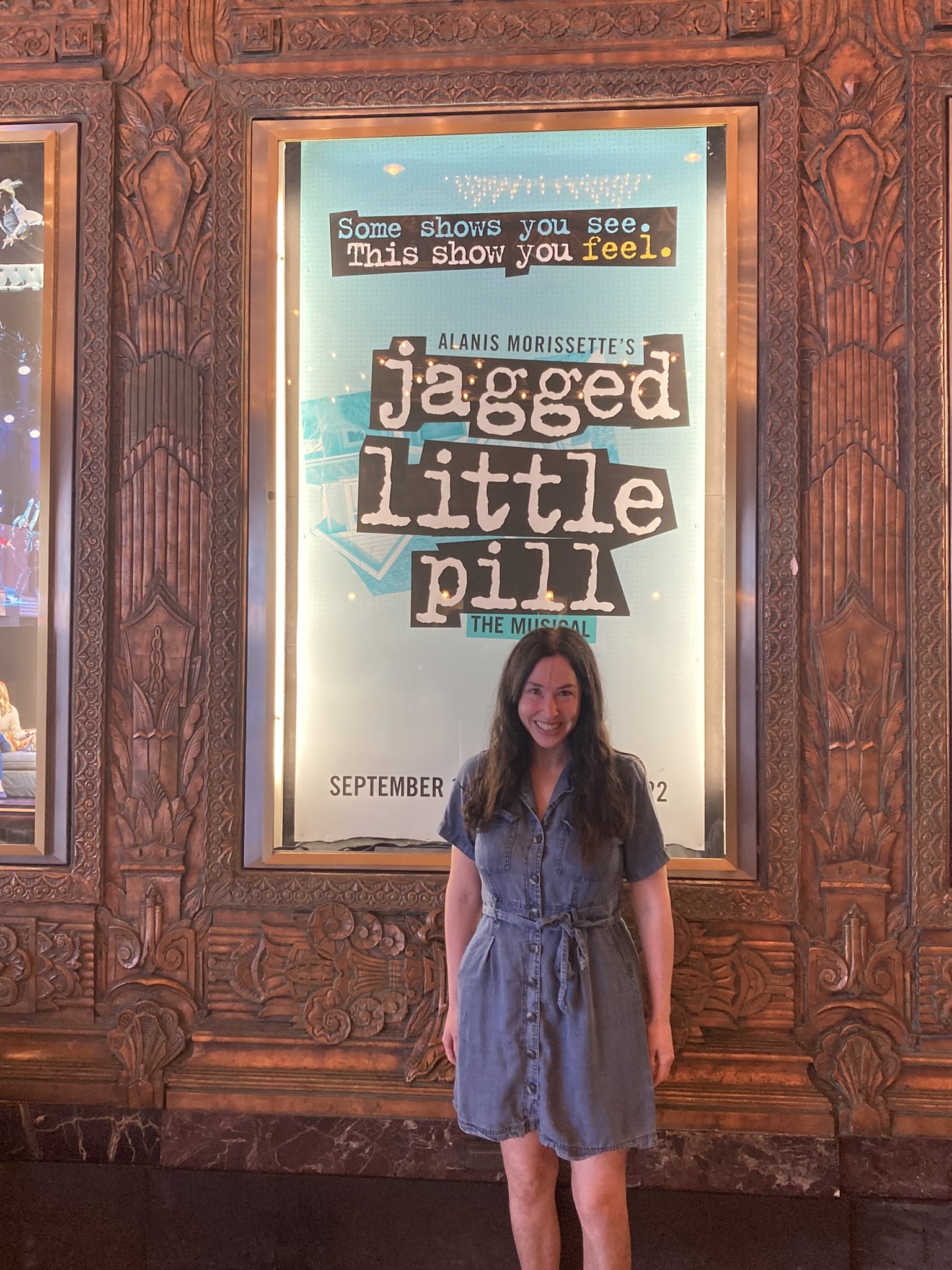
I’ve described my pain to doctors so many times over the course of three decades that the words have lost all meaning. Shooting, stabbing, burning, throbbing . . . What doctor-approved adjective could properly explain what it’s like to smile and carry on a conversation when it feels like the veins in my legs are being drilled like cavities?
I have Sjögren’s syndrome, a systemic autoimmune disease that attacks my blood vessels (vasculitis), swells my eyes, forehead, and throat (angioedema), and cuts off blood flow to my hands and feet (Raynaud’s Phenomenon). I’ve had it since I was a kid, and it flares easily and often. I spend much of every day making decisions designed specifically to avoid physical pain, saying no to most social invitations, and waving goodbye to passions and ambitions that once lit up my soul. But every now and again, I’ll willingly sacrifice my physical health for my mental health. I’ll choose to be in pain just so I can feel some joy.
“Some of the best experiences I’ve ever had . . . were not pain-free.”
An estimated one-third of people who live with a chronic illness experience depression because of the happy moments sickness steals from us. Saying yes to a beach day with my dog, a trip to a vegan street fair with my sister, or a marathon of baking with my mom is my way of taking back some of that stolen joy. I do so knowing that at the end of the day, my blood vessels will be broken and bleeding; my brain will be so foggy and fatigued that I’ll forget how to string together a sentence. It’s a heartbreaking choice, but when it comes down to it, I would rather be in pain than depressed.
It’s not a decision I take lightly. It can be soul-shattering to have one day of pure joy turn into months of additional pain and limitations. I reached out to over a dozen members of the disability community, many of whom live with debilitating chronic illnesses, to see if they agree that occasionally sacrificing their physical health for their mental health is worth it. The verdict?
“Being disabled is complicated,” Laken Brooks, a writer and grad student, tells POPSUGAR. “Some of the best experiences I’ve ever had — my happiest memories — were not pain-free.”
Brooks has tinnitus. Loud sounds and high pitches can trigger pain and ringing in her ears, which can make her feel dizzy and disoriented. “And do you want to know an ironic bummer? I love listening to opera and heavy rock!” Brooks shares.
She tries her best to avoid loud noises in her daily life, but says that listening to live music is essential to her mental health. “Even if my hearing cuts out partway through a performance, I can watch the performers move on stage, I can smile with my friends, I can feel the vibrations of the bass through my body. These sensations help me feel alive.”
I know how essential that is. Though until the pandemic hit, I had little trouble finding enough sparks of happiness to balance out my pain. Joy was always there, like a pink and sparkly night-light I could reach for and turn on, no matter how dark life got. And it got pretty damn dark. My father was an abusive sociopath who terrorized my mom, sister, and me for the first 12 years of my life — until we went into hiding and our story became a literal Lifetime movie. I wholeheartedly believe years of fear and trauma triggered my autoimmune disease. It most certainly triggered anxiety and depression, made worse by my chronic illness and pain.
But when I think of my childhood in Canada, I think of giggle fits, cheers, and applause in the dimly lit halls of the domestic violence shelter we fled to. I see my mom teaching a long lineup of women and kids how to do the bunny hop and my sister and me performing impromptu song and dance routines from “The Sound of Music.” My physical pain was survivable as long as my mental health remained intact. And until March 2020, it more or less did.
My mental health has suffered more in the past three years than in all years prior to 2020. So when I was offered free house seats to the Broadway tour of “Jagged Little Pill” at the Pantages Theatre here in Los Angeles last year, I said yes — even though I’m immunocompromised and, at that point, hadn’t gone anywhere outside my home in two and half years except to walk my dog. I said yes, even though I hadn’t attended any live theater in 14 years because the cramped sitting situation, and the inability to prop my legs, causes excruciating pain and vasculitis. I was dangerously low on joy and willing — for the first time in a decade and a half — to experience pain so severe I’d be unable to read or write for months.
 Image Source: Courtesy of Brijana Prooker
Image Source: Courtesy of Brijana Prooker
I rediscovered my love of Broadway during the pandemic, and listening to the original Broadway cast recording of “Jagged Little Pill” — in particular, Tony winner Lauren Patten assuring me “everything’s gonna be fine, fine, fine” in her serotonin-boosting, nervous system–calming rendition of “Hand in My Pocket” — staved off more than one panic attack.
So I double masked — an N95 on top of a KN95 — and, right there on Hollywood Boulevard, popped some Benadryl to counteract a likely flare of angioedema from the masks’ tightness against my skin. I swallowed the maximum dose of ibuprofen and crossed my fingers that it would delay the inevitable onslaught of vasculitis.
“Joy lingered too — and made the pain worth it.”
The next two and a half hours were pure magic. There are pictures of me in front of the “Jagged Little Pill” poster after the show, and I’m glowing — absolutely beaming in a way I hadn’t seen myself all pandemic long. The pain kicked in on the ride home and, even three months later, the blood vessels in my arms were so inflamed I couldn’t handwrite a single Christmas card (one of my favorite holiday activities) and had to scoop Christmas cookie dough onto baking sheets from my bed. But the Broadway joy lingered too — and made the pain worth it.
Feeling fully alive — and truly happy — can be worth the trade-offs for others, too. As Fredrick Favour, a human resources manager with rheumatoid arthritis and fibromyalgia, tells POPSUGAR: “We have to live our lives, not just survive them.”
On some days, Favour struggles to get out of bed, make breakfast, and brush his teeth, but “once in a while, I decide to do something that makes me happy, even if it means risking a flare-up or more pain,” he says. Last month, Favour prioritized his mental health, knowing it would come at a physical cost. He went on a date with his boyfriend to see an Imagine Dragons concert and says it was one of the best nights of his life. “We danced, we sang along, we kissed, we laughed. I forgot about my pain and my illness for a few hours,” he says. For days after, Favour was bedridden. But he has no regrets. “It was a rare moment of joy that I will always cherish.”
When you’re chronically ill, there are very real consequences to pushing your body into a flare. It’s something that Charlotte Bramford, who has chronic fatigue syndrome and runs an online community to help others with ME/CFS and long COVID, navigate their symptoms, hopes others can acknowledge: “The reality is, when you live with chronic illness, worsening your symptoms is just something you have to do if you want to take part in normal, everyday things healthy people take for granted.”
Like joy.
Image Source: Getty / Peter Dazeley / Photo Illustration by Aly Lim
